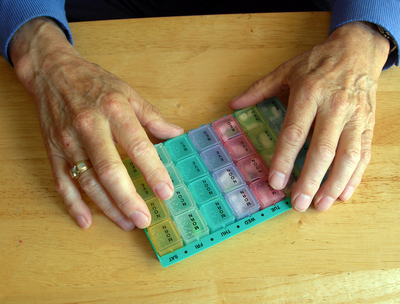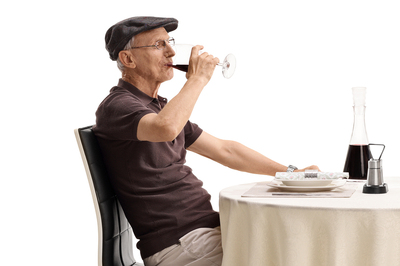
Seniors are not immune to addiction.
Addiction and Seniors
The National Council on Alcoholism and Drug Dependence, Inc. (NCADD) notes:
“There are many reasons elderly people may turn to alcohol or drugs in later life. Children grow up and leave home. It becomes necessary to give up a job or move to a smaller home. Friends grow fewer and farther apart. Physical health fails. A partner of many years gets ill or dies. The very real difficulties of aging can easily pile up and impel seniors toward alcohol or drugs. Or a person may have had a problem for a long time that has continued to get worse over the years.”
Additionally, the use of opioid pain medications is growing among older adults due to increased incidences of chronic conditions, including everything from fibromyalgia and arthritis to headaches and lower back pain.
The statistics speak to the severity of the problem. According to NCADD, 2.5 million seniors have alcohol or drug problems, and just under 17 million tranquilizer prescriptions are written for the elderly every year. Furthermore, as many as 11 percent of senior hospital admissions are related to alcohol and drug abuse. In fact, seniors are hospitalized for alcohol-related problems as often as they are for heart attacks.
Signs and Symptoms of Senior Addiction
Unfortunately, healthcare practitioners often miss signs of addiction among seniors. Says NCADD:
“Diagnosis may be difficult because symptoms of alcoholism and drug dependency in older individuals sometimes mimic symptoms of other medical and behavioral disorders common among this population, such as diabetes, dementia, and depression. Additionally, many patients are not adequately screened due either to lack of training on the part of physicians or bias that alcoholism and addiction are not worth treating in this population.”
This is why vigilance on the part of family members and other caregivers is vital. Family members know their aging loved ones better than anyone else. Because of this, they may be the first to observe addiction-related issues. While they may not immediately be able to identify them as such, the problem may reveal itself with closer attention.

If that drink is a ritual, senior addiction may be afoot.
For what, specifically, should you be on the lookout? According to NCADD, in addition to telltale signs like empty liquor and beer bottles, symptoms that an aging loved one may have an addiction problem include:
- solitary and/or secret drinking
- drinking “rituals”
- loss of interest in once-pleasurable activities and hobbies
- disregarding warning labels about alcohol use on prescription drugs
- frequent use of tranquilizers
- the smell of alcohol on breath and/or slurred speech
- changes to personal appearance
- chronic health complaints
- depression and/or hostility
- memory loss and confusion
It is true that some of these symptoms may occur with other health problems, but it is imperative to be vigilant with regard to tracking down the underlying reasons behind any of these symptoms to ensure the health and well-being of your aged loved one.
How Families Can Help
Family members are also uniquely positioned to help seniors get the treatment they need, which can be complicated when age is factored in to the equation. In addition to a comprehensive medical assessment aimed at identifying the most critical areas of clinical concern for seniors, “the resident’s progress should be monitored regularly, and treatment should be coordinated by the entire medical, psychological, and therapeutic team” during treatment,” according to McKnight’s Senior Living.
Not only are attempts to manage senior addiction individually likely to fail, but they may also be dangerous to senior health. Because of the complexities of senior addiction, inpatient drug rehab offers the most promising path to recovery for many older adults.
We’re Here to Help
To learn more about how Harris House can help, contact us today.








